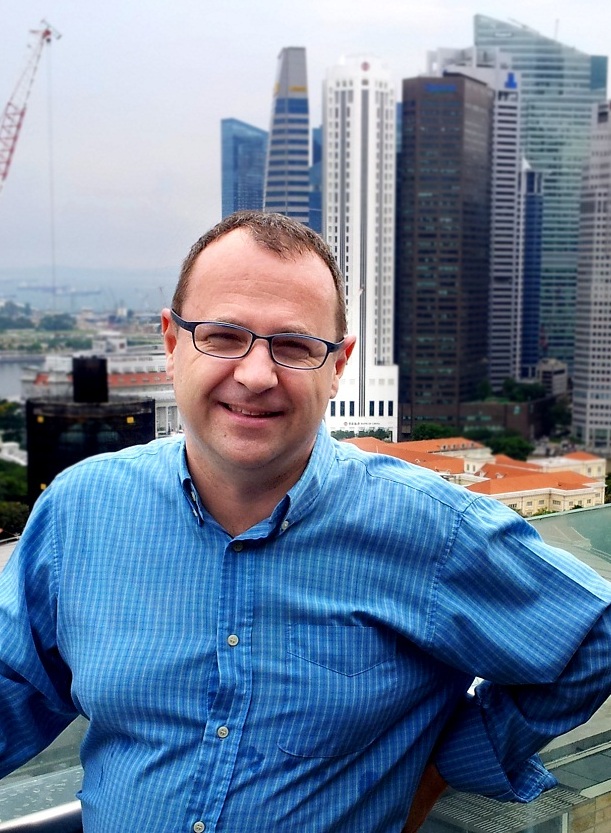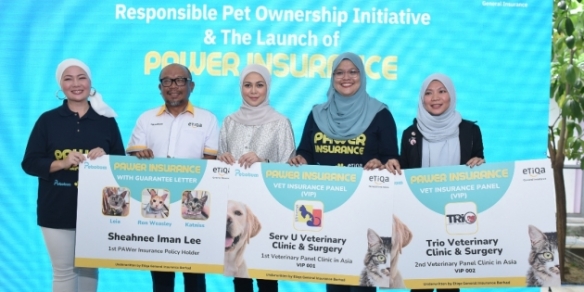JFDI.Asia selects 8 teams for first accelerator program in 2013
By Digital News Asia February 6, 2013
- Teams have 100 days to move from idea to investment
- Each has already got an immediate S$25,000 boost
 SINGAPORE-based JFDI.Asia has unveiled eight digital start-up business teams set to run its gruelling 100-day idea-to-investment accelerator program. The race begins on Feb 21 at its new purpose-built facility in the island republic.
SINGAPORE-based JFDI.Asia has unveiled eight digital start-up business teams set to run its gruelling 100-day idea-to-investment accelerator program. The race begins on Feb 21 at its new purpose-built facility in the island republic.
Each team has already won a prize: An immediate S$25,000 investment, JFDI.Asia said in a statement.
Based on last year’s results, each also has a better-than-60% chance of winning S$600,000 or more at the Demo Day which marks the program’s finish line, when the team gets six minutes on stage to impress an audience of active early-stage investors.
[S$1 = US$0.81]
Between now and Demo Day, each team must prove that its baby business can jump three hurdles: It must focus on a real-world problem that is worth solving; it must show that its solution fits that problem; and finally, it must prove that the market is willing to pay for its solution.
The challenge is less about brilliant ideas than it is about focused execution, JFDI.Asia said.
“It is an incredibly exciting time to be doing this work. Around the world, accelerator programs like ours are evolving a consistent way to direct innovation, teach entrepreneurship and manage the risks involved,” said Hugh Mason (pic), co-founder and CEO at JFDI.Asia. “Early-stage business is becoming less of an art and more of a science.”
The teams all have temporary names for now, knowing that their businesses are very likely to evolve. They aim to make money from business models that span business-to-business (B2B), business to consumer (B2C) and consumer-to-consumer (C2C).
Mobile technology underpins most of them, reflecting the fact that mobile devices are fast emerging as the way most Asians get online, JFDI.Asia noted.
The teams are:
- AskAbt from India has a platform to manage real-time crowd-sourced queries (C2C).
- Collabspot from France and Philippines has a novel approach to Customer Relationship Management or CRM (B2B).
- DayTripR from Singapore and New Zealand has an online data collection utility (B2B).
- DocTree from Singapore and India has software for medical practice management (B2B2C).
- Duable Chinese (讀able) from the United States makes Chinese language learning fun and effective (B2C).
- FashFix from Singapore and Malaysia helps fashionistas turn their wardrobes into blog shops (C2C).
- My Fitness Wallet from Singapore, is working on health and wellness (B2C).
- Referoll from Singapore and Vietnam has a business that recruits participants for research studies (B2B2C).
One or two additional teams may slip in just before the boot camp begins, JFDI.Asia said, adding that some interesting patterns emerged from the selection process:
- More than 30% of participants in this program are Singapore citizens or permanent residents, up from 20% in 2012.
- The average team size is just over three people, with the ‘holy trinity’ of a ‘hacker, a hipster and a hustler’ well represented to span the skills of coding, design and business.
- Around 10% of the entrepreneurs taking part are women, double the number from last year.
The selection process worked this way: 23,472 visitors from 148 countries went online to read about the program. They faced a challenging application process that 262 teams entered and from which eight emerged ready for the program.
The rest received detailed feedback and an offer of support to fix the issues that seemed to hold back their chances. The hope is that many will be ready for future programs, which JFDI.Asia will now run twice each year.
Meng Wong, co-founder at JFDI.Asia, led the development of the new approach to selection, dubbing it ‘The Frog Score’.
“Our mission is to help the largest number of innovative business start-ups in South-East Asia succeed,” he said.
“We do not claim we have a magical sixth sense for ‘spotting winners’ but we do feel confident about our ability to spot issues that will very likely trip up a team during an accelerator program, or later when they try to raise investment.
“Knowing what needs to be fixed is the first step to making yourself a winner,” he added.
Across the world, early-stage businesses are experiencing a ‘Series A Crunch’ when weaker candidates fail to raise funding a year or so after incorporation. It’s a pattern that the world’s top accelerators like Y-Combinator have observed and to which they have reacted by recruiting for quality rather than quantity, JFDI.Asia said.
For some talented teams applying to JFDI.Asia, the Achilles’ heel was a bad deal with a previous investor that left little motivation for the founders. Others were technically strong but had no direct insight into the domain in which they hoped to operate. Finally, some international teams had no strong tie to the region and were referred to other accelerators around the world.
JFDI.Asia is building an innovation academy that accelerates, finances and teaches innovation and entrepreneurship. Its accelerator ‘boot camp’ program takes teams of entrepreneurs from idea to investment in 100 days.
Typically, more than 60% of teams succeed in securing S$500,000–700,000 funding per team at the end of the program.
JFDI.Asia is based in Singapore but operates with partners across the Asia Pacific region, focusing on mobile digital innovations.
Related Stories:
Golden Gate Ventures, JFDI.Asia offer fast-track seed funding
Sustainable social start-ups and the ecosystem
For more technology news and the latest updates, follow @dnewsasia on Twitter or Like us on Facebook.


